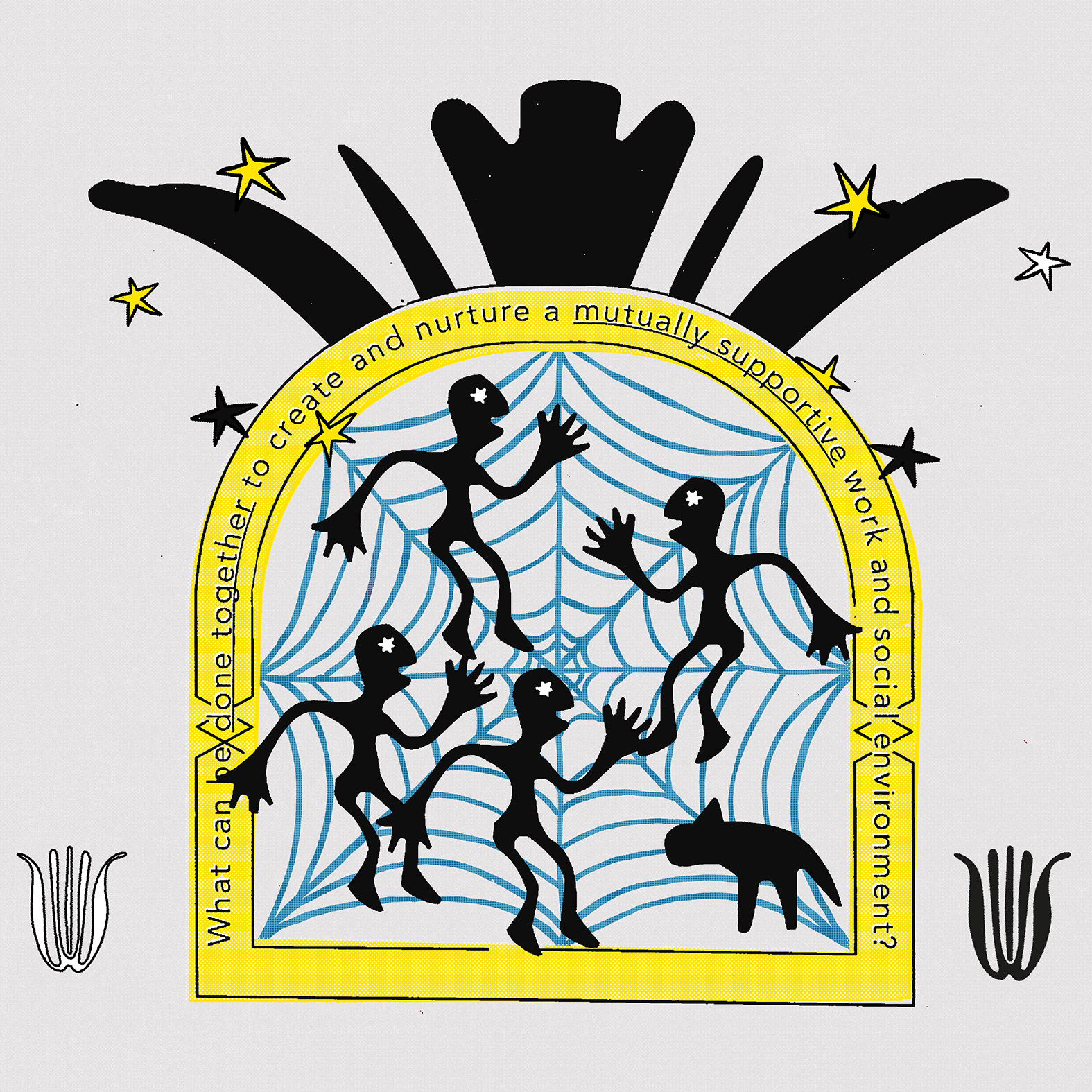
A Mere Face in the Crowd
What happens when young musicians leave their hometowns or their places of study and head for another city? What happens to their sometimes ambitious plans of becoming successful? Jakarta-based journalist Gisela Swaragita remembers her own case and looks back to her study-years in the South-Central Javanese metropole, Yogyakarta. Here is a short essay on an idle bass in a childhood bedroom and a city in which music scene pools expire every couple of years.
I was writing this aboard a train taking me from my hometown, Yogyakarta, to Jakarta, where I live and work. I have taken similar trips like this far too often, and now I know which seat I should book to make the most of the lengthy and lonely trip: morning train, car number 6, row A, small numbers. That way I can jump from the platform right into the car and get the best view of Menoreh hills on the eight-hour journey, while contemplating the life I left behind and the days ahead of me in the capital city.
A Short Life on Stage Only
As I was sitting on seat 9A of car number 6, with my forehead leaning on the glass window and my eyes following the changing view – from green hills to rice fields to topless children running about the slums by the railroad – my mind wandered to the bass guitar I left in my childhood bedroom in Yogyakarta. The Squier classic vibe precision 50s with butterscotch blonde finish was a darling, but its life on the stage was short.
I bought it in 2016, around the time I got a real salary from my first real job after I graduated from university. With the bass, I recorded an album and played some kick ass shows with my dream pop band, Seahoarse. In 2017, I moved to Jakarta to start a career as a journalist. The bass did not come with me.
I was lucky enough to taste the colorful atmosphere of Yogyakarta’s music scene for more than 10 years. Since 2007, besides having my name on the records of three bands of three different genres, I also got to see the various creative endeavours of youngsters in the city budding, blooming, and in their own time, withering.
A Playground for a Limited Time
Like many student cities in the world, Yogyakarta is a vibrant pool for the art and music scene, and historically has produced many great names in both the pop and experimental genres. However, being a musician in Yogyakarta is a sustainable venture for only a handful of lucky ones. The city is one with the lowest minimum wage in Indonesia, making it impossible for sidestream musicians to find a career that supports their living and lifestyle, while also making music on the side. The scene, consequently, is treated only as a playground or a school – a great place to learn and thrive, but within a timeframe.
Forging a music career from the scene is not impossible, but is extremely rare. To make sure that your life on stage is long and prosperous, one needs incredible support systems and safety nets, mostly including rich families and an army of famous relatives.
When the Heyday Is Over
The ever-changing face of popular aesthetics is also another challenge to keep up with. There is a saying that the music scene of the moment in Yogyakarta will expire after five years because eventually people will go to other cities to build a «real» career, while new, younger students will arrive and start another subculture wave in the city with a totally different taste. Many of those who try to stay in the scene would struggle to stay relevant among the new kids, and end up drowning in nostalgia of their heyday that is now lost in the wrinkle of time.
New, promising bands are now emerging in Yogyakarta, and I have been pushed aside to embrace my new role as a spectator. As a mere face in the audience.
But the music community is fascinating when seen from any angle, not only from the stage under the limelight. And as the train took me further and further away from where my butterscotch bass lay, idle and unplayed, I realized that where I am now is not too bad.
Biography
Links
Published on February 14, 2022
Last updated on June 28, 2023
Topics
Snap


